People
(please refresh if you don’t see the Bio after clicking on the name of a person)
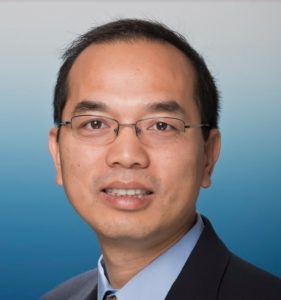
Dr. Guanghui Hu is a serial entrepreneur and a venture investor in the biotech and healthcare industry. He was honored with the EY Entrepreneur of The Year award for his achievements in business and leadership. He also acquired rich experience in drug discovery and development at leading biopharma companies. Dr. Hu is currently a Founding Partner of Westfield BioVentures, Venture Partner of Viva BioInnovator, and a CEO/Board Director/Advisor of many startups. He holds a PhD from Baylor College of Medicine and a BS from Tsinghua University.
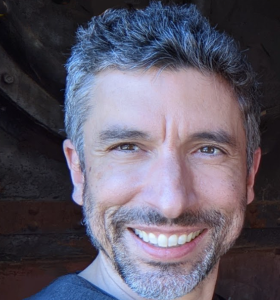
Timur initially trained as a biochemist and has since contributed to the development and discovery of new therapeutics in various settings, including academia, venture capital, and biotech startups. He previously held faculty positions at Harvard Medical School and the Dana-Farber Cancer Institute, where he collaborated closely with Novartis Oncology. Timur then joined Third Rock Ventures as an EIR, playing a pivotal role in incubating multiple startups. Subsequently, he founded MOMA Therapeutics, where he established the company’s initial platform and discovery programs. Later, Timur launched his second startup, Episode One Labs, which specializes in delivering high-quality, domestic CRO services, catering specifically to early-stage and stealth startups. In addition, he continues to provide strategic guidance and fundraising advice to multiple startups.
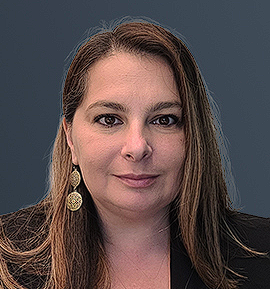
Azra SadiBasic is educated in the legal field with valuable experience in back office support, management and general business administration. She has worked for profit and non-profit organizations with domestic and international business operation set ups. She is always striving for high efficiency, professionalism and complete dedication at her job and is currently working for multiple startups to support company building.
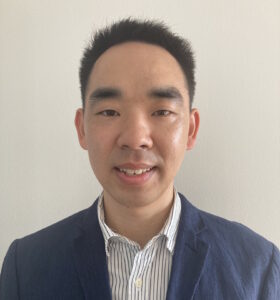
Dr. Sanxiong Liu is a highly motivated professional with 12 years of biomedical research experience in molecular and cell biology, biochemistry, neurobiology, epigenetics, CRISPR/Cas9, hiPSC, NGS, and bioinformatics. He holds a PhD in molecular neurobiology from Tsinghua University and is currently a postdoctoral fellow at HHMI/NYU Grossman School of Medicine. Dr. Liu’s research focuses on epigenetic-regulated transcription and its malfunction in neurodevelopmental disorders and cancer. He has an excellent publication record in high-impact journals and serves as an editor and reviewer for dozens of journals including Cellular and Molecular Life Sciences; The CRISPR Journal; Human Gene Therapy; Epigenetics; Molecular Neurobiology; etc.
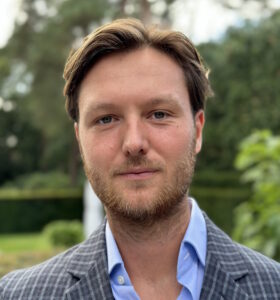
Egied holds an undergraduate degree in Economics from Boston University and is pursuing a masters in Biochemical Engineering, focused on the manufacturing and commercialization of gene and stem cell therapies, from the University College London. His professional background involves placements in finance, travel, real estate, and biosciences — including NAKI Therapeutics. Outside of his educational and professional background, Egied also holds an interest in computer science; focusing on SQL, Java Script, Python, data science, and machine learning.

Dr. Gregory Critchfield received a bachelor’s degree in Microbiology from Brigham Young University in 1976, an MD degree from the University of Utah in 1980, and a master’s degree in Biophysical Sciences at the University of Minnesota in 1985. There he also completed fellowships in Clinical Chemistry and in Health Information Sciences sponsored by the National Library of Medicine. He is boarded in Clinical Pathology. He served as a reviewer and study section chair for the NIH for 15 years in biomedical computing programs for SBIR, STTR and R01 programs. His research has focused on building quantitative models in many areas of laboratory medicine including anticoagulation control, method standardization, mass spectrometric identification of drugs, predictive value modeling, quantitative health policy analysis, clinical genetics, and proteomics applied to pregnancy. He has served on the faculty of three medical schools: University of Minnesota, Wayne State University and Duke University. He worked as a practicing clinical pathologist with Intermountain Healthcare for nine years, where he became Director of Clinical Pathology. He then joined Corning Clinical Laboratories in 1995, which became Quest Diagnostics, Inc., where he served as Chief Medical and Science Officer, with responsibility for science, medicine and innovation. He joined Myriad Genetics, Inc. in 1998, where he was President of its diagnostic subsidiary, Myriad Genetic Laboratories, Inc. until March 2010, where he built Myriad Genetic Laboratories, Inc. into one of world’s leading molecular diagnostic companies. He chaired the Governor’s State Advisory Council on Science and Technology for the state of Utah in 2006. He has served as an independent director in industry association and various life science companies developing breakthrough biopharmaceutical, medical device and diagnostic technologies, including BioTrove, Inc. (acquired by Life Technologies, Inc.), Biocius, Inc. (acquired by Agilent), Saladax Biomedical, Inc., Metamark Genetics, Inc. (acquired by P4 Diagnostix), Nodality, Inc., Epic Sciences, Inc., Lantos Technologies, Inc., Integrated Diagnostics, Inc (acquired by Biodesix) and Condor Therapeutics. He served as Chairman and CEO of Sera Prognostics, Inc., a women’s health company focusing on preterm and other pregnancy predictions from 2011-2023, where he led fundraising of more than $300M in the form of venture and IPO funding, taking Sera pubic in July 2021, where he now serves on its board. Dr. Critchfield also currently serves as an adjunct faculty member on the board of the Center for Medical Innovation at the University of Utah. He also serves as a Trustee of Bear Lake Watch, a non-profit organization protecting the color, clarity and depth of Bear Lake (UT/ID).
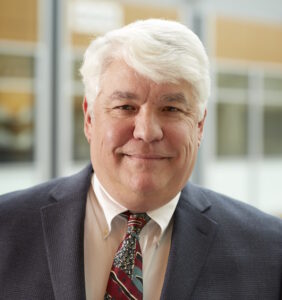
Mr. Golikov is a Senior Licensing and Pharmaceutical Business Development Executive who is a resourceful, results-driven leader with over twenty years of experience in general management, drug development and business development with a strong base of business and technical experience in bio-pharmaceutical environments. He has a record of success in fund raising, strategic planning, contract negotiation and building intellectual property. Current and prior experience in academic Medical Center environments includes Rutgers University, University of Medicine and Dentistry of New Jersey, Columbia University Medical Center, and Wake Forest Baptist Medical Center. As former President and COO at both Virologix and EpiCept Corporation, he was responsible for leading, organizing and funding research and product development efforts in varied fields including vaccine development, antivirals, and ethical prescription pain management products. This experience required broad interactions with clinical regulatory, product development staff, consultants, discovery scientists, the US Patent Office and FDA officials. At EpiCept Corporation, 5 new US INDs were filed and multiple projects were brought to late stage clinical development. Additionally, clinical product development experience at Ortho, Berlex, and Bristol Myers expanded expertise in numerous fields including pain research, cardiovascular products, imaging, and infectious diseases. Clinical stage projects at Ortho led to NDA approvals for two infectious disease products.
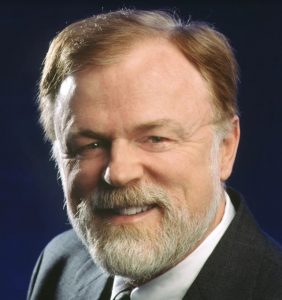
Dr. Searls received undergraduate degrees in Philosophy and Life Sciences from MIT, and a PhD in Biology from Johns Hopkins. During a postdoctoral fellowship at the Wistar Institute in Philadelphia, he turned his attention to computational biology, and obtained a Master’s in Computer and Information Science from the University of Pennsylvania. He then spent seven years in artificial intelligence R&D at Unisys Corporation, including work on computational linguistic approaches to DNA sequence analysis. In 1991 he returned to Penn as Research Associate Professor of Genetics, where his research applied formal language theory to biological macromolecules. During this time he co-founded the Intelligent Systems for Molecular Biology (ISMB) meeting series, and was a founding board member of the International Society for Computational Biology (ISCB). In 1995 he assumed responsibility for bioinformatics at SmithKline Beecham Pharmaceuticals, later GlaxoSmithKline, from which he retired in 2008 as Senior Vice President of Computational Biology.

Dr. Liang Cheng is the inaugural Virgil H. Moon Endowed Professor of Pathology and Urology at Indiana University School of Medicine. Currently, he is Chief of the Genitourinary Pathology Service, Director of the Urologic Pathology Fellowship, and Director of Molecular Diagnostics and Molecular Pathology Laboratories. Dr. Cheng is board certified in Molecular Genetic Pathology, Anatomic and Clinical Pathology. Dr. Cheng received the Arthur Purdy Stout Prize from the Arthur Purdy Stout Society of Surgical Pathologists in recognition of outstanding contributions to the field of surgical pathology for a surgical pathologist less than 45 years old. Dr. Cheng has published 1034 peer-reviewed SCI articles in high-impact scientific journals. His published work has been cited more than 50,000 times (ISI Web of Science h-index: 108). He is also the author of several well-known textbooks, including Urologic Surgical Pathology, Essentials of Anatomic Pathology, and Molecular Genetic Pathology, Molecular Surgical Pathology.

Dr. Jeffrey L. Evelhoch recently retired from his role as Vice President and Head of Translational Biomarkers at Merck Research Laboratories (MRL) in August 2020. In that role, he led a group of 100 scientists, with expertise in quantitative imaging and molecular assays, responsible for development, qualification and use of biomarkers to inform pipeline decisions, including support for drug and diagnostic approval at Merck. Dr. Evelhoch joined MRL in 2008 as Vice President and Head of Imaging and was named Vice President and Head of Translational Biomarkers in 2015. He joined Merck after four years at Amgen as Executive Director and Head of Imaging Sciences, which followed 2 years at Pfizer Global Research & Development (initially Pharmacia) as Director of Structural Imaging. Prior to joining the biopharmaceutical industry, Dr. Evelhoch was Professor of Internal Medicine, Oncology and Radiology at Wayne State University School of Medicine focused on imaging biomarkers in oncology.

Stanley F. Nelson, MD, is a Professor of Human Genetics, Pediatrics, Neurology, and Pathology and Laboratory Medicine at the David Geffen School of Medicine at UCLA. He develops and implements genomic tools to improve molecular diagnostics and performs translational research. His work of over 300 publications, cited more than 50,000 times, has revealed dozens of novel diseases and their molecular cause. He completed MD at Duke University School of Medicine in 1987, Pediatrics and Hematology-Oncology at UCSF in 1993, and a postdoctoral fellowship at Stanford University in 1993. He is the Founder and Co-Director of the Center for Duchenne Muscular Dystrophy, which encompasses education, research, clinical care, and clinical trials for Duchenne. In 2011, he established clinical exome sequencing at UCLA. He has led the UCLA Clinical Site of the Undiagnosed Diseases Network since 2014, which is focused on new rare disease discovery and development of transcriptomic analytical techniques to enhance whole-genome sequencing. Since 2019, he has been the Director of the California Center for Rare Diseases and is engaged in clinical trials and translational research.
